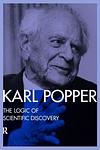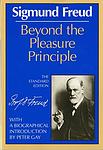The Greatest Austrian "Philosophy" Books of All Time
Click to learn how this list is calculated.
This list represents a comprehensive and trusted collection of the greatest books. Developed through a specialized algorithm, it brings together 300 'best of' book lists to form a definitive guide to the world's most acclaimed books. For those interested in how these books are chosen, additional details can be found on the rankings page.
Genres
Philosophy is a category of books that explores fundamental questions about existence, knowledge, ethics, and reality. It encompasses a wide range of topics, from the nature of consciousness and the meaning of life to the principles of logic and the foundations of morality. Philosophy books often challenge readers to think deeply and critically about the world around them, and to consider different perspectives and arguments in order to arrive at their own conclusions.
Countries
Date Range
Reading Statistics
Click the button below to see how many of these books you've read!
Download
If you're interested in downloading this list as a CSV file for use in a spreadsheet application, you can easily do so by clicking the button below. Please note that to ensure a manageable file size and faster download, the CSV will include details for only the first 500 books.
Download-
1. Philosophical Investigations by Ludwig Wittgenstein
This book is a seminal work in 20th-century philosophy, presenting a detailed critique of the notion that our language directly corresponds to reality. The author argues that the meaning of words is not inherent, but rather derives from their use within specific forms of life. The book also introduces the concept of language games, suggesting that our understanding of language is akin to learning the rules of a game. The author further explores the limits of language, the nature of understanding, and the relationship between public and private language.
-
2. Tractatus Logico-Philosophicus by Ludwig Wittgenstein
"Tractatus Logico-Philosophicus" is a seminal work in analytic philosophy that presents a comprehensive picture of reality and our knowledge of it. The book outlines a logical structure for all scientific discourse, arguing that language and its logical structure are the primary tools for understanding and representing the world. It proposes that all philosophical problems arise from misunderstandings of the logic of language, and that all meaningful propositions are pictures of states of affairs in the world. The book concludes with the famous line "Whereof one cannot speak, thereof one must be silent," suggesting that things that cannot be spoken about logically should not be spoken about at all.
-
3. Civilization and Its Discontents by Sigmund Freud
This book is a seminal work in the field of psychology, exploring the inherent tension between civilization and the individual. The author, a famed psychologist, argues that civilization's imposition of societal norms and restrictions leads to individual unhappiness and discontent. He delves into the conflict between the human desire for freedom and society's need for order, suggesting that this tension is at the root of much human suffering. The book further explores concepts such as the super-ego, guilt, and the death drive, offering profound insights into the human psyche.
-
4. The Logic of Scientific Discovery by Karl Popper
This book is a significant work in the philosophy of science, proposing a methodology for scientific discovery that challenges traditional inductive reasoning. The author argues that scientific theories can never be proven definitively, but can only be corroborated or falsified through empirical testing. He introduces the concept of falsifiability as the key criterion for distinguishing scientific theories from non-scientific ones. The book also delves into the problems of induction, demarcation, and the relationship between theory and observation in scientific practice.
-
5. The Tao of Physics by Fritjof Capra
The book explores the parallels between modern physics and eastern mysticism. It draws connections between quantum mechanics, relativity theory and concepts in Hinduism, Buddhism, Taoism, and Zen. The author argues that the two seemingly disparate areas of study - physics and mysticism - both seek to understand the fundamental nature of the universe and that they do so in strikingly similar ways. The book challenges conventional thinking and encourages readers to see the world from a more holistic, interconnected perspective.
-
6. I and Thou by Martin Buber
This philosophical work explores the concept of relationships and the nature of dialogue. The author suggests that human life finds its meaningfulness in relationships, which he divides into two categories: "I-It" and "I-Thou". The "I-It" relationship is characterized by a detached and objective perspective, while the "I-Thou" relationship involves a deep sense of connection and mutual existence. The book argues that modern society, with its emphasis on individualism and materialism, often neglects the "I-Thou" relationship, leading to a loss of genuine human connection.
-
7. Function of the Orgasm by Wilhelm Reich
This book presents a groundbreaking exploration of human sexuality, arguing that sexual repression leads to various psychological disorders. The author, a psychoanalyst, introduces the concept of "orgastic potency", which is an individual's ability to fully surrender and discharge pent-up sexual energy during the sexual act. He contends that societal norms and moralistic attitudes towards sex often hinder this release, leading to various neuroses and other psychological issues.
-
8. The New Science of Politics by Eric Voegelin
"The New Science of Politics" is a seminal work in political philosophy that explores the nature of political societies, the symbolism of political power, and the essence of modernity. It delves into the evolution of political thought, from ancient civilizations to the modern era, and critically examines the ideologies that have shaped the contemporary political landscape. The author argues that understanding the spiritual and religious dimensions of political reality can provide a more comprehensive view of society and governance. The book is a profound meditation on the philosophy of history and a radical critique of modern political ideologies.
-
9. Repression by Sigmund Freud
This book delves into the concept of repression, a fundamental aspect of psychoanalytic theory. The author explores the idea that individuals often repress memories, particularly those associated with trauma or discomfort, pushing them into the unconscious mind. This repression, however, can lead to various psychological issues such as anxiety, depression, and neurosis. The book also discusses the therapeutic process of making the unconscious conscious, enabling individuals to confront and deal with these repressed memories.
-
10. Beyond the Pleasure Principle by Sigmund Freud
Beyond the Pleasure Principle is a seminal work in which the author introduces his theory of the death drive, arguing that human behavior is driven not only by the instinct to seek pleasure and avoid pain (the pleasure principle), but also by a fundamental, unconscious compulsion towards self-destruction (the death drive). The book is notable for its exploration of traumatic memory and repetition compulsion, as well as for its controversial departure from the author's previous theories of psychoanalysis.
Reading Statistics
Click the button below to see how many of these books you've read!
Download
If you're interested in downloading this list as a CSV file for use in a spreadsheet application, you can easily do so by clicking the button below. Please note that to ensure a manageable file size and faster download, the CSV will include details for only the first 500 books.
Download








